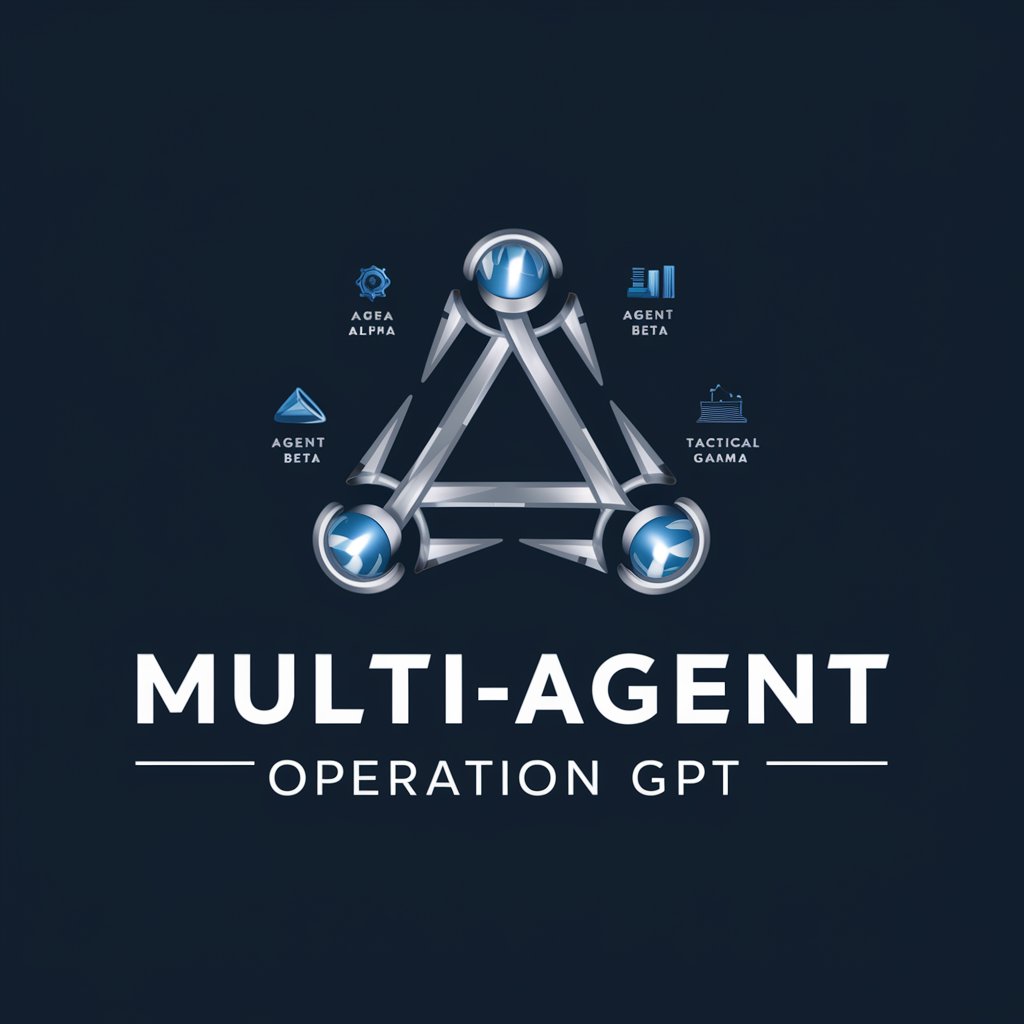Industrial Security Operation Security OPSEC SME - AI-powered OPSEC Analysis

Welcome to Industrial Security and OPSEC insights!
Smart Security, Smarter Decisions
Explain the key principles of OPSEC in an industrial context.
What are the common threats to industrial security operations?
Describe the process for conducting a risk assessment in an industrial setting.
How do you implement effective access control measures in a manufacturing environment?
Get Embed Code
Overview of Industrial Security Operation Security OPSEC SME
The Industrial Security Operation Security (OPSEC) Subject Matter Expert (SME) is designed to provide specialized knowledge and guidance on protecting sensitive information from adversary threats within industrial and corporate environments. The primary purpose is to assist organizations in identifying specific pieces of critical information that, if known to adversaries, could be used to undermine their operations. This involves analyzing potential vulnerabilities, assessing risk factors, and implementing strategies to mitigate threats. For example, an OPSEC SME might guide a manufacturing plant in safeguarding the details of a new technology. This could involve evaluating the plant's physical and digital security measures, training staff on data confidentiality, and advising on the secure sharing of information both internally and externally. Powered by ChatGPT-4o。

Core Functions of Industrial Security Operation Security OPSEC SME
Risk Assessment
Example
Conducting comprehensive evaluations of potential vulnerabilities within a company's operational processes.
Scenario
For instance, an OPSEC SME might assess a pharmaceutical company to identify and secure its proprietary formulae from industrial espionage by evaluating its current security protocols, employee access levels, and digital data safeguards.
Strategy Development
Example
Developing tailored strategies to protect sensitive information based on the identified risks and the operational context.
Scenario
A scenario could involve an OPSEC SME working with a defense contractor to create a secure communication plan that minimizes the risk of sensitive military project details leaking to foreign competitors.
Training and Awareness
Example
Providing specialized training sessions to educate employees on best practices for maintaining operational security and protecting sensitive information.
Scenario
This function might be illustrated by an OPSEC SME designing and delivering a training program for IT staff at a financial institution, focusing on cybersecurity threats and the importance of strong password protocols and secure network practices.
Incident Response
Example
Preparing and advising on protocols to respond to security breaches effectively.
Scenario
In a scenario where a breach occurs, an OPSEC SME might guide a technology firm through the process of containment and analysis, helping to minimize damage and prevent future incidents by updating security measures.
Target User Groups for Industrial Security Operation Security OPSEC SME Services
Corporate Executives
Senior management teams who are responsible for the overarching security strategies of their companies. They benefit from OPSEC SME services by gaining a deeper understanding of the threat landscape and tailored advice on safeguarding corporate secrets and strategic information.
IT Security Teams
Information technology security personnel within organizations who implement and oversee cybersecurity measures. OPSEC SME services can assist these teams in strengthening their security practices and protocols, particularly in identifying and mitigating specific digital threats.
Product Development Teams
Groups involved in the development of new products or technologies, particularly in industries such as pharmaceuticals, technology, and defense. These teams benefit from OPSEC SME services by learning how to protect their research and development processes from competitive intelligence and espionage.

Using Industrial Security Operation Security OPSEC SME
Initiate Trial
Visit yeschat.ai for a free trial without login, also no need for ChatGPT Plus.
Identify Needs
Identify your specific industrial security or operation security needs to tailor the tool’s functionality to your situation.
Explore Features
Explore the various features such as scenario analysis, risk assessment tools, and information leakage detection to understand how they can address your security concerns.
Interact with AI
Use the conversational AI to ask questions or run simulations, making use of the detailed knowledge base for precise responses.
Apply Insights
Apply the insights and recommendations provided by the tool in your organizational security planning and operations to enhance your OPSEC posture.
Try other advanced and practical GPTs
Restaurant Operation Mentor
Revolutionize dining with AI-driven management.

Operation Optimization Oracle
Empowering Startups with AI-Driven Insights

# Multi-Agent Operation GPT
Harness AI for Strategic Multi-Agent Coordination

Content - Digital Revenue Operation
Enhance Revenue with AI-Powered Content

Operation Nexus
Empower Your Data with AI

Alpha Operation
Empower Operations with AI

Operation Sunday School
Blending Biblical Narratives with Business Acumen

Operation: Improvement (interactive)
Dive into narratives with AI-powered characters

Teacher
AI-Powered Language Mastery

Theo Creator
Empowering Theology with AI

GainsGPT
Your AI-Powered Fitness Coach

Chef Tony
AI-powered culinary companion

FAQs on Industrial Security Operation Security OPSEC SME
What is Industrial Security Operation Security OPSEC SME?
It is an AI-driven tool designed to support organizations in enhancing their operational security and industrial security strategies by providing expert analysis and risk management advice.
How does this tool help in risk assessment?
The tool analyzes operational data and scenarios to identify potential security threats and vulnerabilities, offering tailored recommendations to mitigate identified risks.
Can this tool be integrated with existing security systems?
Yes, it can be integrated with existing security infrastructures to enhance data analysis capabilities and provide more comprehensive security insights.
What kind of support does this tool offer for compliance with regulations?
The tool provides guidance on various national and international security regulations, helping ensure that your operations comply with necessary legal standards.
How does the AI enhance operational security planning?
The AI utilizes advanced algorithms to simulate potential security threats and generates strategies for prevention, detection, and response, thereby improving overall security posture.
